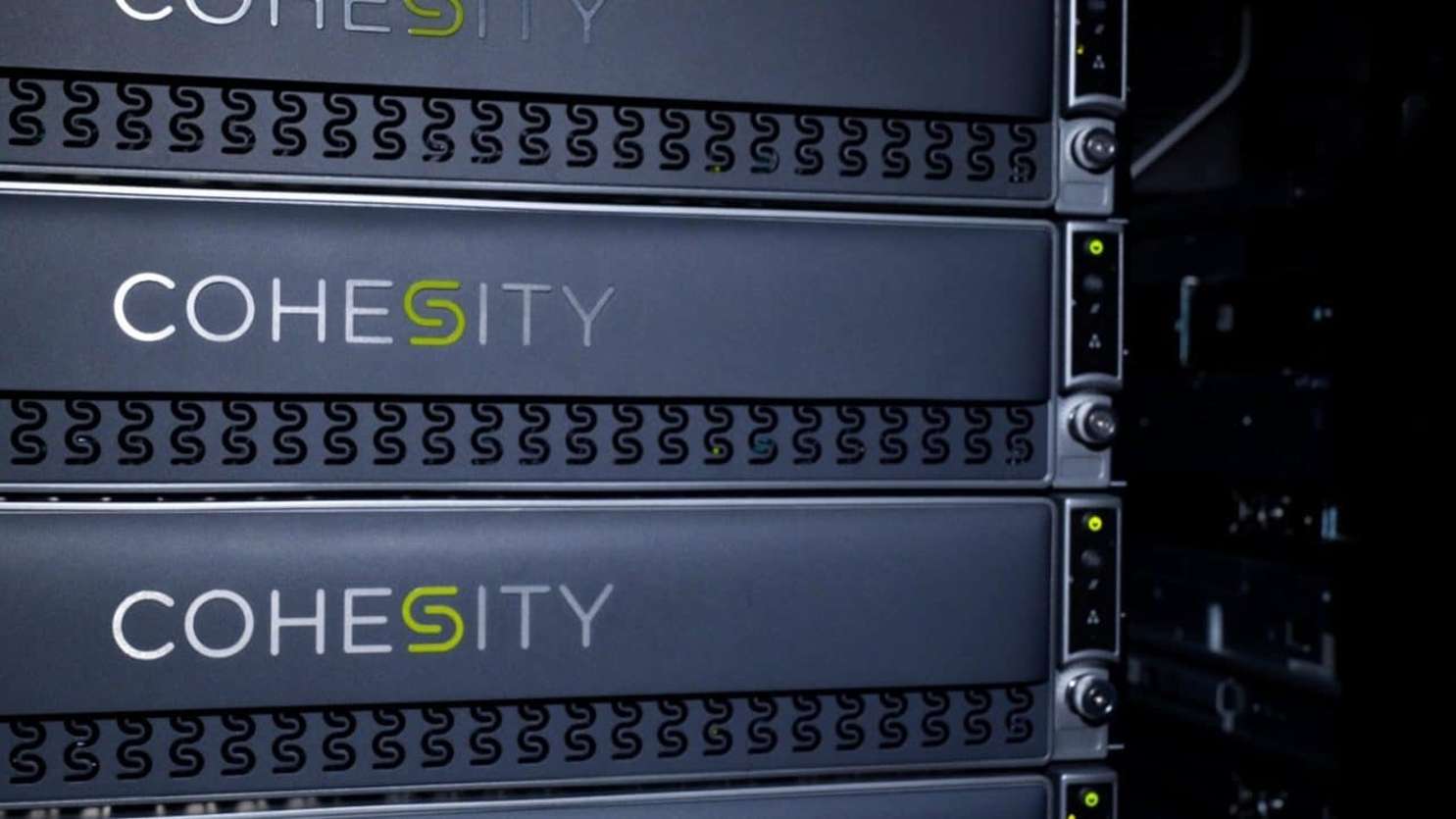Research commissioned by Cohesity, a leader in AI-powered data security and management, reveals today’s pervasive cyberattacks are forcing the majority of companies to pay ransoms and break their ‘do not pay’ policies, with data recovery deficiencies compounding the problem.
Cohesity is headquartered in San Jose, CA, and is trusted by the world’s largest enterprises, including six of the Fortune 10 and 42 of the Fortune 100
The research polled from over 300 Australian IT and Security decision-makers shows that companies firmly operate in a ‘when’, not ‘if’, reality of cyberattacks.
In fact, most companies have paid a ransom in the last two years, and the vast majority expect the threat of cyberattacks to increase significantly in 2024 compared to 2023.
Alarmingly, almost 3 in 4 (72%) respondents said their company had been the ‘victim of a ransomware attack’ between June and December.
The cyber threat landscape is expected to get even worse in 2024, with over 99% of respondents saying the threat of cyberattacks to their industry will increase this year and 7 in 10 (70%) predicting it will increase by more than 50%.
Organisations’ attack surfaces are defined by the size and scope of their data environments. However, 88% of respondents said their data security risk has now increased faster than the growth in the data they manage.
Respondents also believe organisations’ cyber resilience and data security strategies are not keeping up with the current threat landscape, with less than 1 in 4 (24%) having full confidence in their company’s cyber resilience strategy and its ability to ‘address today’s escalating cyber challenges and threats.
Slow Data Recovery & Lack of Cyber Resilience Results Ransom Payments
Cyber resilience is a technology backbone for business continuity. It defines companies’ ability to recover their data and restore business processes when they suffer a cyberattack or adverse IT event. However, according to respondents, every company has cyber resilience and business continuity challenges:
● No respondent said they could recover data and restore business processes within 24 hours
● Just 4% said their company could recover data and restore business processes within 1-3 days
● 26% said they could recover in 4 to 6 days, and 42% need 1-2 weeks to recover
● Alarmingly, 28% need over 3 weeks to recover data and restore business processes
Further demonstrating cyber resilience gaps, just 14% said their company had stress-tested their data security, data management, and data recovery processes or solutions in the six months prior to being surveyed, and 50% had not tested their processes or solutions in over 12 months or at all.
Unsurprisingly, 92% of respondents said their company would pay a ransom to recover data and restore business processes, while 6% said ‘maybe, depending on the ransom amount.
Almost 2 in 3 (64%) said their company would be willing to pay over US$3 million to recover data and restore business processes, with 27% of respondents saying their company would be willing to pay over US$5 million.
The research also showed the importance of being able to respond and recover, as 81% said their organisation had paid a ransom in the prior two years, despite 73% saying their company had a ‘do not pay’ policy..
“Organisations can’t control the fact they face an increasing volume, frequency, and sophistication of cyberattacks like ransomware.
“What they can control is their cyber resilience, which is the ability to rapidly respond and recover from cyberattacks or IT failures, by adopting modern data security capabilities,” said Michael Alp, Managing Director, Cohesity Australia & New Zealand
“It’s probably no surprise that the majority of Australian respondents said their company has been hit by cyberattacks in the past six months“
“However, what is alarming is that over 8 in 10 have paid a ransom, breaking their ‘do not pay’ policies, and most are willing to pay over US$3 million in ransoms – often because they can’t recover their data and restore business processes, or do so fast enough.”
Executive Management Should Be Accountable & Aligned
Respondents identified executive awareness and responsibility for data security as two areas for companies to improve, with just 36% saying their senior and executive management fully understands the ‘serious risks and daily challenges of protecting, securing, managing, backing up, and recovering data.
Three in four said executive management (C-Level) and boards should share the responsibility for their company’s data security strategy, while 68% said their company’s CIO and CISO, in particular, could be better aligned.
Prioritising their biggest concerns about a successful data breach or cyberattack, respondents selected a drop in share price / investment / profitability (36%), brand and reputational damage (34%), a loss of stakeholder trust (31%), and a direct hit to revenue (30%).
When asked who is most impacted by a data breach or cyberattack, respondents said existing customers (30%), the IT team (29%), third-party partners (28%), and employees (27%). Interestingly, only 25% of Australian respondents said the ‘Security team’ compared to respondents globally who had the ‘Security team’ ranked first alongside customers at 29%.
“Cyber resilience and data security should be a holistic organisational priority because the use of data and technology occurs in every function by every employee,” said Alp.
“The severe impact of a successful cyberattack or data breach on business continuity, revenue, brand reputation, and trust is enough to keep any business, IT, and Security leader awake at night,”
“To rapidly respond to and recover from cyberattacks, organisations need modern AI-powered data security and management solutions that protect their data, detect when it is under attack, and recover it as fast as possible to restore their business processes.” he said.
Regulation Isn’t Driving Companies’ Cyber Resilience & Data Security Best Practices
Despite governments and public institutions going to great lengths to encourage stronger cybersecurity and data management, just under half (49%) of respondents said government initiatives, legislation, and regulations are actually driving their companies’ data security, data management, or data recovery initiatives.
Of the respondents that said specific government initiatives, legislation, and regulations are driving their data security, management, and recovery approaches, close to 1 in 4 (23%) named these specifically as the most influential:
Australia:
- Privacy Act 1988
- Digital Transformation Agency Guidelines
- Office of the Australian Information Commissioner’s Notifiable Data Breach (NDB) Scheme
“It may seem surprising that more than 1 in 2 respondents said government efforts and policies aren’t driving their companies’ data security, management, and recovery initiatives. However, organisations should not be basing their entire data security, risk, management, or recovery strategy around a set standard or compliance framework,” said Alp.
“While organisations should certainly adhere to legislation, regulation, and standards, these should be seen as a starting point or baseline. The security risks to a company’s data and operational continuity should be what drives their data management, security, and recovery practices.”
About the survey:
The findings are based on a survey of 902 IT and Security decision-makers (split as close to 50:50 as possible) commissioned by Cohesity and conducted by Censuswide.
Survey respondents were polled from businesses in Australia (301), the United Kingdom (300), and the United States (301).
The top five industries selected by Australian respondents as best representing the industry their company operates in were:
- Finance.
- IT & Telecommunications.
- Education.
- Manufacturing & Utilities.
The findings from the research commissioned by Cohesity underscore the alarming reality of today’s cybersecurity landscape. The challenges associated with data recovery deficiencies exacerbate the situation, highlighting the urgent need for robust and proactive measures to enhance data security and management.
As organisations navigate these complex threats, it is imperative for them to prioritize investments in AI-powered solutions and comprehensive cybersecurity strategies to safeguard against the evolving cyber threats of the digital age.
About Cohesity
Cohesity is a leader in AI-powered data security and management. Aided by an extensive ecosystem of partners, Cohesity makes it easier to secure, protect, manage, and get value from data – across the datacenter, edge, and cloud.
The company assists businesses defend against cybersecurity threats with comprehensive data security and management capabilities, including immutable backup snapshots, AI based threat detection, monitoring for malicious behavior, and rapid recovery at scale.







